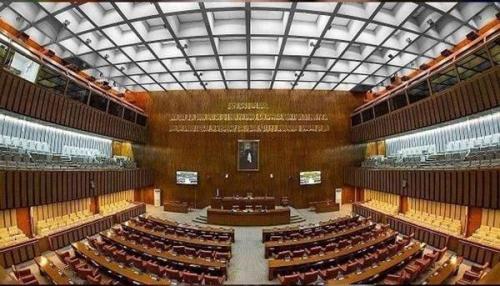22 July 2025 :
A bill seeking to abolish the death penalty for harbouring hijackers and for publicly stripping a woman of her clothes was passed on July 18, 2025 by the Senate amidst voices of dissent from both sides of the aisle.
The Criminal Laws Amendment Bill, aimed at aligning Pakistan’s laws with its international obligations under the GSP+ trade agreement with the European Union (EU), which requires limiting capital punishment to the most serious crimes, was moved in the House by Minister of State for Interior Talal Chaudhry.
The bill proposes the replacement of the death penalty under Sections 354-A and 402-C of the Pakistan Penal Code (PPC) with life imprisonment.
Currently, Section 354-A states: “Whoever assaults or uses criminal force against any woman, strips her of her clothes, and exposes her in public shall be punished with death or life imprisonment, along with a fine.”
PTI’s parliamentary leader in the Senate Barrister Syed Ali Zafar remarked that the crime of stripping a woman in public is as serious as murder and stressed that death penalty for this offence should remain unchanged.
Senator Muhammad Abdul Qadir questioned whether the death penalty for terrorism would be abolished.
Balochistan Awami Party (BAP) lawmaker Samina Mumtaz Zehri observed that the laws concerning crimes against women should be made stricter, not lenient. She warned that easing punishments would embolden criminals. She pointed out that the conviction rate in such cases is already low due to weak prosecution, and emphasised the need for reforms in the police and judicial systems.
“This is not right. This is not going to help the country or its people,” she said, opposing the amendment.
Law Minister Azam Nazeer Tarar, however, argued that harsh sentences did not necessarily deter crime. He cited the example of European countries where death penalty did not exist, yet the crime rate ws just 2pc.
He added that in Pakistan, the death penalty currently applied to over a hundred offences. He noted the punishment for stripping a woman in public was originally seven-year imprisonment, and was converted to capital punishment during the regime of Gen Zia in 1982.
The bill now moves forward for approval in the National Assembly, where it is likely to face further scrutiny amid the ongoing national discourse on justice, gender rights, and penal reform.











